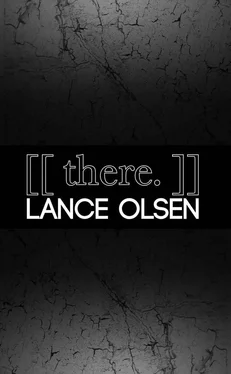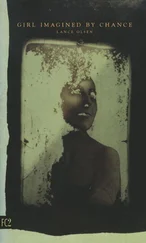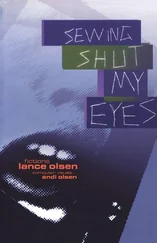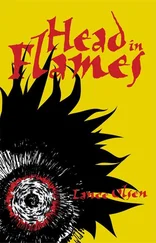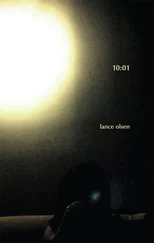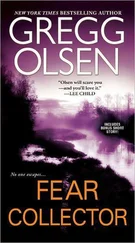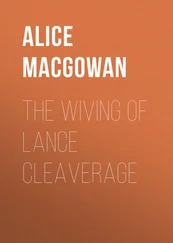Not 100 thriving houses, not 60 or sixteen or six, but three behemoth media corporations dominate commercial publishing.
They employ the print arms of their swollen conglomerates as tax write-offs.
:::: It’s always Stunde Null, Zero Hour, in Berlin and innovative writing practices.
:::: Which is to say the Khmer Rouge. Rwandan genocide. Israel’s freakish execution of its own Berlin Wall and ghettos for the unwanted.
Why. How.
:::: Our verb narrate comes to us from the Latin narrare , meaning to tell, relate, recount, explain, literally to make acquainted with , which comes to us from the Proto-Indo-European root gno , meaning to know .
To tell always resulting in a failed stab at understanding.
:::: Magnus Hirschfeld was an outspoken advocate for LGBT rights during the late nineteenth and early twentieth centuries. Within the increasingly tolerant interzone of the Weimar Republic, he opened the Institute for Sexual Research a stone’s throw from the Reichstag in 1919. The Institute provided medical consultations and housed both a library with a vast collection on sexuality and the Museum of Sex, the latter of which was regularly visited by eager schoolchildren on fieldtrips.
:::: Fourteen years later, 40,000 people gathered in the Opernplatz to watch books go up in smoke.
Into a huge bonfire went 20,000 by those the Nazis deemed subversive: liberals, anarchists, communists, pacifists, socialists. Thomas and Heinrich Mann. Bertolt Brecht. Karl Marx. Helen Keller. Ernest Hemingway. H.G. Wells. Jack London. Sigmund Freud. Sinclair Lewis. Albert Einstein. Rainer Maria Rilke.
Joseph Goebbels honored the enthusiastic crowd with a speech. Scholarship had gradually isolated itself from real life, he said. He said the era of extreme Jewish intellectualism was over. Yes to decency and morality in the family and state, he said.
Sounding a lot like a commentator on Fox News.
The books you see the Nazis tossing into the flames in the famous newsreel footage supposedly belong to Magnus Hirschfeld’s library.
:::: Arriving at a new destination, you pay attention in a way you’re never able to do after having lived there for even a few weeks.
How the doorknobs are handles placed slightly higher than you’re used to. How some of the street-crossing signals sound like metronomes while others don’t. How non-fat milk, yogurt, and lattés are virtually unheard of outside Starbucks and the robot voice on all trains tells you politely a minute before you reach the next station which side to expect the platform on.
As it always is with leaving home, Anthony Doerr noticed, it is the details that displace us.
:::: At the Academy, they’re paying me to write. It’s extraordinary. They cook for me five days a week; clean the apartment and change towels every Monday; offer Andi and me private tours of galleries, free tickets for films and music, a chance to meet German artists and writers and musicians — and they provide me with a generous monthly stipend.
All I have to do is put down words on pages and attend lectures by fellow fellows.
The guilt and elation vie up and down my spine every morning as I take my seat before my computer, in the middle of every night when I shock awake in the luminous non-hours.
:::: Under ordinary circumstances we should like to recommend another publisher to whom the work might appeal; but we regret to say that we do not think it probable that you will find any publisher for work of this kind.
Wrote an editor when rejecting a manuscript submitted by Gertrude Stein.
:::: How the pillows for some reason smell medicinally bitter. How even I — five-foot-eight and slim, give or take, despite the weight my belly has already begun aggregating because of the amazing food — feel too large in the shower stall, my elbows knocking into the hardware, changing water pressure and temperature. How our apartment has a doorbell that sounds like something more urgent, electronic, and high-pitched than a doorbell, and so I often tune it out when writing, neglect to check who might be waiting on the other side.
How staying is a gradual process of forgetting how to see, hear, smell, touch, taste.
:::: Travel is what Marcos Novack calls liquid architecture — a digital mode without doors or hallways; visionary designs seeking out extreme regions that feel like spatialized music; continuously unfixed, flickering, mercurial constructions whose forms are contingent on the interests of the beholder; structures for what does not yet exist.
:::: The fifth definition of experimental: tentative .
:::: The difference between art and entertainment involves the speed of perception. Art deliberately slows and complicates reading, hearing, and/or viewing so we can re-think and re-feel form and experience. Entertainment deliberately accelerates and simplifies them so we don’t have to think about or feel very much of anything at all.
:::: Schlager : the word (literally meaning hit —in the musical sense — as well as wooden club ) for the overly sweet ballads with catchy melodies and love lyrics that were especially popular in Germany during the 1950s, 1960s, and 1970s, and that saw a kitsch comeback in the 1990s and early 2000s. Schlager is the sonic lint Krautrock groups like Kraftwerk, Popol Vuh, and Tangerine Dream tried to sweep out the door.
Schlager isn’t political. That’s exactly what makes it so political.
:::: Inhabitants of towns near concentration camps reported tufts of human hair from the crematoria occasionally drifting down into the streets.
:::: When O. was in his twenties, one of the great pleasures of waking each morning was knowing he was about to share his dreams with A. over breakfast, A. about to share her dreams with him. Now he’s lucky if he can remember one drab flash rehearsing some tone-deaf scene.
Initially he attributed this impairment to the busyness of mid-life rhythms: the job, the responsibilities, the stuff of distraction. In Berlin, however, away from all that, it is the same thing, so he goes online to learn what’s happening between his ears. Apparently things are getting older. Humans sleep less and less as they age. Stage four sleep becomes distant gossip among most elderly people. Chronic aches and pains jab one awake in the middle of the night. One discovers oneself with an enlarged prostate, and/or depression, and/or anxiety, and/or restless leg syndrome, and/or breathing difficulties.
Evidence suggests your dream world gradually fades from color to black-and-white.
Your cranium turns into the history of film, only in reverse.
:::: Koestenbaum: A hotel room can never be mine, no matter how many nights in a row I stay there.
An assertion that is both true and false.
Give yourself a week, and you’ll become aware of your hotel room to the same extent you are already aware of any room in your house as you pass through it on your way to somewhere else, which is to say almost not at all.
:::: In Berlin, one enjoyed freedom, of both conscience and penis.
Affirmed Voltaire.
:::: Nassim Nicholas Taleb coined the term narrative fallacy to refer to the common intellectual blunder of forcing chaos into cosmos in an attempt to account for what eventuates around us.
We are natural story generators, pattern recognition machines, designed to narrate what the world has done to us, whether what the world has done makes sense or not. Give us an incident, no matter how enigmatic, indeterminate, or tenuous its causes, and we will tell in order to generate the impression of coherence. We strong-arm links, invent causal chains.
Hello conspiracy theorists, Greek mythologists, biographers, New-Age everything-occurs-for-a-reasoners, historians, cargo cultists, voodoo worshippers, doctors, chemists, Nabokov’s Austrian crank with his shabby umbrella.
Читать дальше
